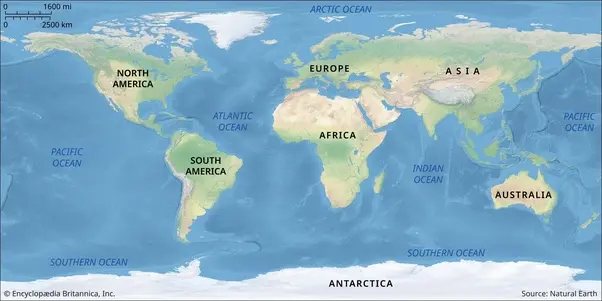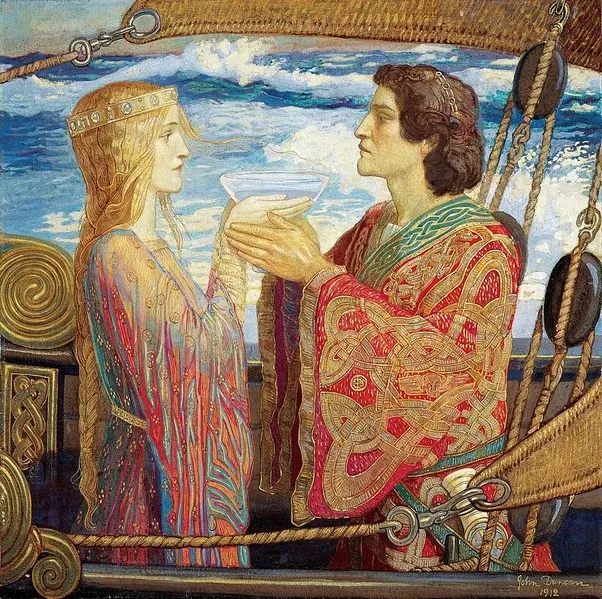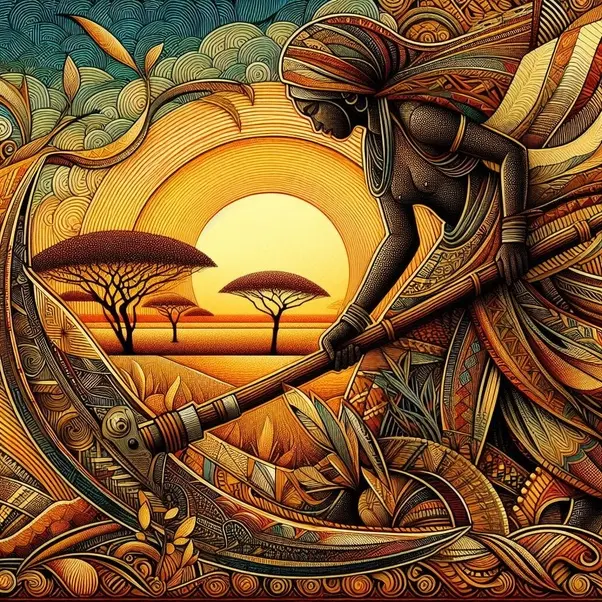By Emmanuel-Francis Ogomegbunam
There was nothing like the African or Arab slave trade. There was just the slave trade, which was no different from commodities trading today. One might trade Urals or Brent, Middling Fair or Low Middling, and you’d be a participant in the oil or cotton trade.
Slaves were commodities to their traders and property to their owners. Both definitions were necessary for the process to work. Labels like African, Arab or White weren’t what mattered to them.
The slave trade has a coherent, linear history that I’ll detail below.

The image above represents the known world (in western Eurasia) until Christoper Columbus and the conquistadores of the House of Habsburg bridged the hemispheres. The 19th-century expansion of maritime exploration and scientific categorisation by Europeans and Americans and then 20th-century Satellites created our familiar map of the earth.

The expansion of the slave trade throughout the known world and the earth occurred in a precise fashion everywhere. Traders exchanged manufactures for commodities and ample commodities for scarce commodities. Those civilisations that traded the most became wealthier than their neighbours.
Same as today, poorer countries only have commodities for sale. A Gaulish chieftain bartering a slave for an amphora of wine occupied the same position as the Mai of Kanem bartering his slaves for northern horses. However, slaves became more expensive as economic activity accelerated and prosperity spread. The core pushed outwards towards its periphery in search of cheaper labour. That globalising logic is still pertinent today. The difference is that gold, silver and cowries—the primary currencies of the past—were like Cap’n Flint’s treasure compared to the dollar’s ubiquity. The Greenback’s liquidity has all but eliminated barter from global trade.
That is part of the tale.
Another is that the 21st century has been an era of immense liberty for most of humanity. In the aeons since Homo Sapiens trod the earth underfoot, one’s place in a hierarchy structured every human relationship.
For I also am a man under authority, with soldiers under me; and I say to one, “Go”, and he goes, and to another, “Come”, and he comes, and to my slave, “Do this”, and the slave does it.’
Matthew 8:9
Even the children of aristocrats were not at liberty to decide their lives. The strictures of class and gender bound their feet, in some cases literally. There is no shortage of stories bemoaning that inherent tragedy.

Slaves were at the bottom of that pile. They were social ghosts without rights borne of one’s heritage. Their legal position was little better than cattle. But humans are smarter than livestock. We can also survive in plenty of places they can’t. That mix of brawn, smarts and societal alienation gave slaves utility in many of the social conditions that characterised pre-modernity. Their utility created the demand for their trade.
Imperial families constructing empires relied on slaves as soldiers, bureaucrats and intimates because free men were riskier to their rule. Nomadic tribes kept slaves to cultivate staples while they engaged in the more valuable luxury trade. Entrepreneurs accumulating wealth in land-rich but labour-scarce environments used slaves to develop the land. Unlike free men, slaves could not demand a share in lands or profits.
Today, the mere state of being human is generally accepted to confer liberty. Your bloodline and ties to the land mattered more in the past. Birth in one family meant a right to rule; in another, it could mean perpetual servitude. Such a world had few protections for a solitary stranger. The Athenians enslaved many in their silver mines and got enslaved in turn after their reversal at Sicily. The Athenian slaves and the Athenians enslaved were both strangers and, thus, fair game.
Roman aristocrats drove competing smallholders into cities and on the dole with vast estates manned by slaves. Charlamagne bartered conquered heathens to Muslim lands. The Vikings viked. Catalans, Genoese and Venetians were willing brokers of African, Asian and European slaves. The cities of Majorca, Palermo, Valencia and Venice thrived on the back of slave trading. I recall King Peter of Aragorn causing a glut in 13th-century slave markets when he sold the entire island of Minorca into slavery. The Ottomans demanded a blood tax from their subjects. Piracy in the Mediterranean also meant that Christian knights and Muslim corsairs raided coastal villages for slaves to sell, man their oars and fight in their wars.
The Middle Ages weren’t just when wolves and the Horsemen of the Apocalypse roamed abroad. It was also a (re)urbanising age. Citizens inhaled liberty because fraternity of a city extended one’s identity beyond familial ties. Bolstered by religion and rising literacy, people embraced broader identities as co-religionists and members of a common nation. A shared religion made conquerors reluctant to enslave the conquered, on the one hand, and more willing to kill them on the other.
National identity, especially in its republican guise, was egalitarian and had no space for the legalised enslavement of one’s people. Slavery died everywhere the nation spread.
Europe’s unending wars strengthened national identities and made tax-paying, conscriptable peasants more valuable within a territory than bartered outwards, even in the absolute monarchies. The wars of the mediaeval age led to territorial consolidation. Those more powerful territorial States rarely got conquered, and that allowed identities as free men to endure. Those liberties got entrenched as European monarchs lost power to urban merchants with superior methods to profit from labour than coerced agricultural production.
As the periphery of the known world and the free folk there-in pushed outwards, the primary slave-catching zones of the world diminished to the Balkans, Caucuses and Tropical Africa. Once the Caucuses became Russian imperial territories and the Balkan nations broke free from the Ottomans, it shrunk further to Tropical Africa. That is why American and Eurasian slavers descended on Africa in the 19th century. It was the final frontier where a free market in the servile existed. The natives on the Caribbean Islands had all perished. Those in the Americas were subjects of the Spanish Crown. Besides, mines and conquistador plantations had a superior claim on their labour.
When the British fleet conquered some of those islands from the Spanish and French, those lands became Crown property. The Crown recouped its expenses by selling those lands to developers who became slavers and the sugar barons of those islands. I imagine something similar happened to the French. European demand for labour to render their tropical American holdings profitable and the absence of nearby slave markets open to their traffic drove the Transatlantic exchange.
Multiple counterfactuals for that fact exist. The Dutch built an Asian slave trading operation that rarely intersected with the Atlantic sphere. Asian slaves purchased from the Dutch Indies introduced Islam into Southern Africa. Slaves in the USA naturally replaced their populations because their initial duties producing food for the Caribbeans were less arduous and their climate healthier. Accordingly, the 13 North American British colonies weren’t active slave importers. However, American slavers developed a racialised, internal slave trade when increased cotton production pushed up the demand for slaves, and the British and French fleets closed the Atlantic to slavers. Brazilians and Cubans ran the blockade until the latter stages of the 19th century because their demand outstripped domestic supply. Finally, Portuguese and Dutch colonists in Africa had no qualms enslaving conquered natives.
The Europeans had to develop the Americas. American and European labour would not suffice. That suggests in every possible scenario, bar one where the natives survived en-masse, African slaves were indispensable. That is why more Africans crossed the Atlantic before the 18th century than anyone else.
Africa became the centre of the slave trade in the 18th and 19th centuries because multiple sources of demand converged on the continent. Christian Eurasians needed slaves to profit from the Americas. Muslim Eurasians required slaves to maintain their regimes and economic structures as Christian lands encompassed the globe and limited the risk-free zones open to Muslim slavers. A century of exclusive slave purchases from Africa branded the continent as the slaving continent ever since.
African warlords acted within an established tradition—exchanging those commodities they controlled for those they did not and industrial goods. The marked absence of agricultural beasts of burden across most of Africa increased the value of human labour—much of them enslaved. The hoe and cutlass, perfectly shaped for the human grip, are widespread farming implements in Africa. In such an environment, slaves as property were an additional factor in capital formation. If trade provided superior returns, so be it.

When I reached the age of Puberty, I expressed to my father the need to get married. My father put the matter before my family and when they asked me of my Capital, I told them I had £8.
My father told me that was too small a capital to marry with. He then instructed me to trade in Kola and travel to the North to buy a slave with my own money before he would allow me to marry any girl I chose. I consented to father’s words [and] bought a male slave.
Once again father asked of the value of my wealth, and I told him I had one slave, 5 cover cloths [investment of £3 for the lot] and £5. He said that it was still insufficient to secure me a wife and therefore gave me a year more to work strenuously to increase my Capital before I married.
By the end of the year, I had increased my wealth with extra £10 and 10 cover cloths. He praised me for my indefatigable efforts and later laid hold on a girl and presented her to me as a wife. He performed all the marriage rites and ceremonies on behalf of the girl for me and gave me extra present in the form of money to marry the girl. Two years afterwards I was able to buy 2 other slaves. . .
—Recollections of Kofi Pusuo
Mr Pusuo was quite wealthy. Adjusted for inflation, £15 is ~£1,600 or N3m in liquid capital. Obviously, his slaves didn’t have that. Although, we can calculate that his investment of <£3 in one contributed to an ROI of £10 or >300%.
It might have been different with Assyrians, Romans and the like. But I’ve noticed that slavers in the Atlantic, with whom I’m most familiar, saw their slaves as a means of enrichment. In sum, everyone got what they wanted except the slaves and the dead. But when has mankind ever had it easy? In the 21st century, I guess, if we can keep it.
